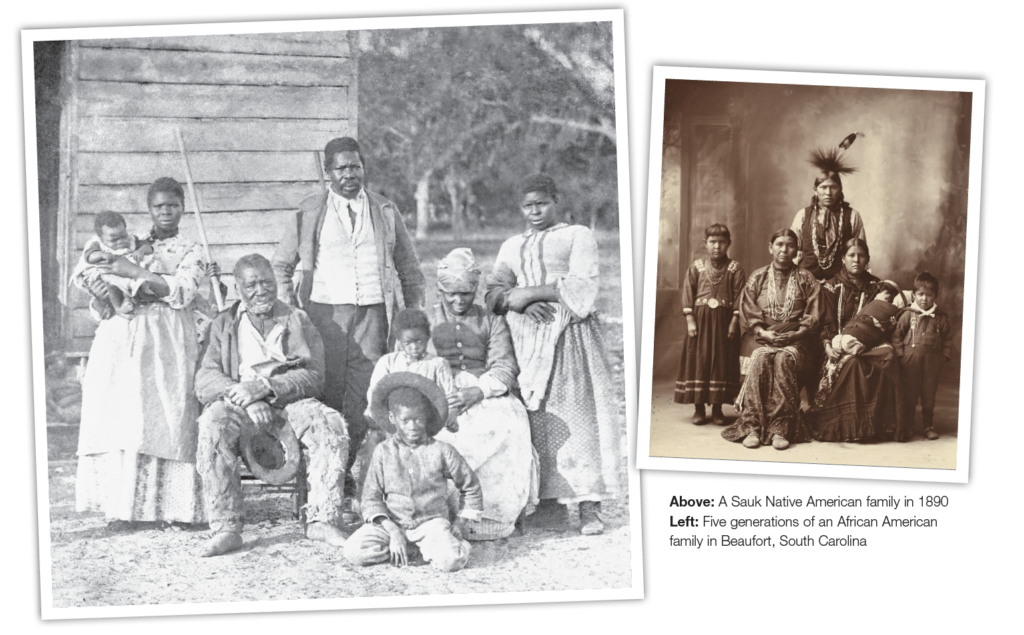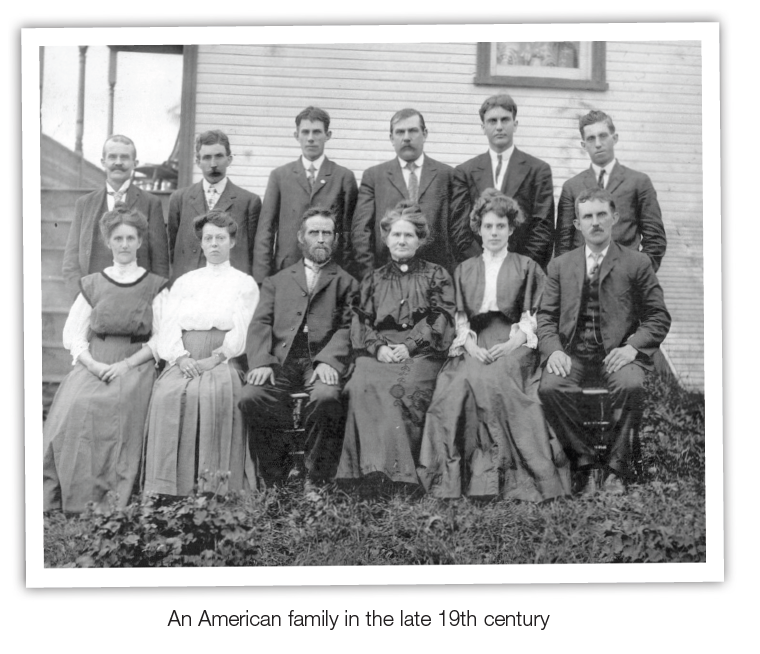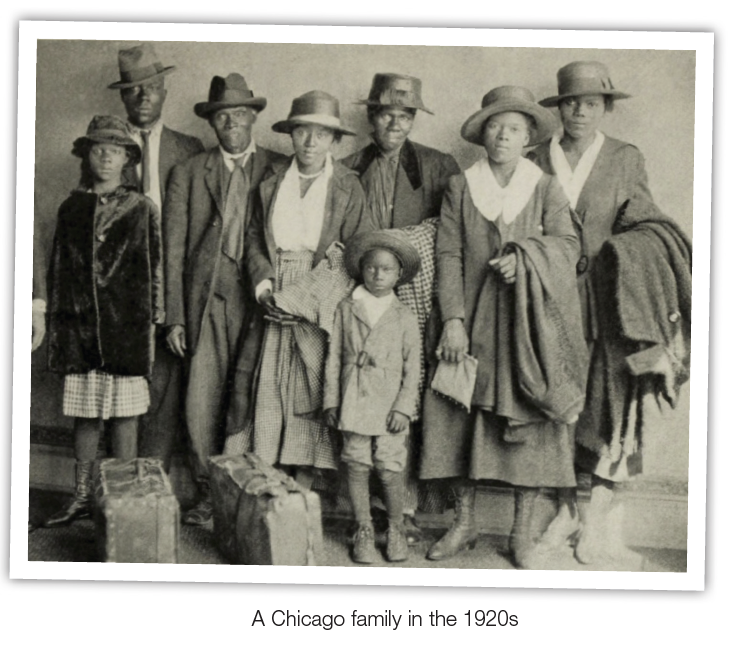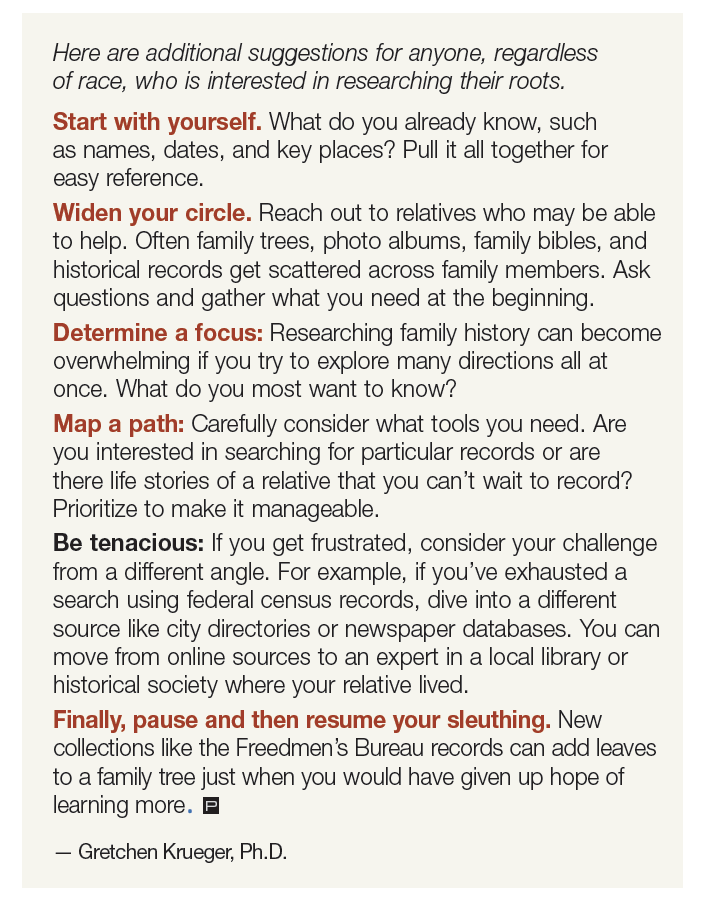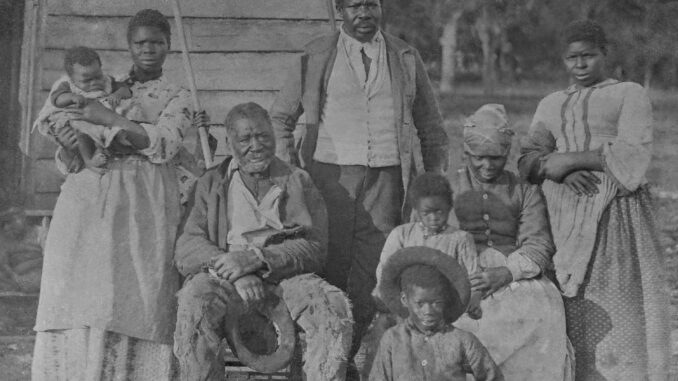
By Angela Lindsey
How far back can you trace your family roots? Many of us want to know as much as we can about our ancestral tree because we want to find answers to who we really are and where we come from.
“In my experience, few things are more compelling than our own origin stories,” said Gretchen Krueger, Ph.D., senior historian and lead family dynamics specialist at Wells Fargo Wealth & Investment Management. Krueger gives people practical tips for investigating and documenting their family history.
The most common questions people ask Krueger include: Where did my family come from? Who came before me? What was their life like, including schooling, daily work, military service, migrations and connections to community?
“Knowing these answers can give us a fuller sense of our self and our place in our families across a long-time horizon — one that spans the past, present and future,” she said.
“History allows us to be able to more fully understand those who came before us and reflect on how they’ve shaped our lives and identities,” Krueger said. “Often we’re not even aware of these influences until we learn more about our family’s past. It’s important to know that ‘the past’ can mean the more distant past and more recent generations. Having this knowledge can stir many emotions – even mixed emotions,” she explained. “History can confer greater responsibility,” she added. “It can also inspire us to contribute to our family’s unique legacy.”
Interest in researching genealogy and family lineage seems to have spiked over the past 25 years or so with the availability of many online resources and at-home testing kits that claim to help people trace their ancestry, as well as the popularity of genealogical TV shows like “Finding Your Roots with Henry Louis Gates Jr.” and “Who Do You Think You Are?”
In fact, Ancestry.com gets about 39,000 visitors a day, according to genealogyintime.com. For some ethnic groups, however, particularly African Americans, this search often hits dead ends because much history has been lost to time or even destroyed due to the transatlantic slave trade which intentionally destroyed family bonds and the stories that went along with them.
While Krueger contends that all researchers—whether novice, experienced or professional — will encounter roadblocks, she acknowledges that African Americans face unique challenges when trying to explore their family history.
“A major challenge is commonly referred to as the 1870 wall, which refers to the period before 1870 when there was a lack of government records available for enslaved people. Most family historians depend on federal census records to trace their ancestors back through time. The U.S. Census has been enumerated every ten years since 1790. Thus, these records help researchers look back across time and place, in decade increments. However, before the Civil War, only free Black Americans (just 10 percent of African Americans at the time) were listed by name in the census.”
The Freedmen’s Bureau archive may provide new clues for those searching for answers. The Freedmen’s Bureau’s records hold a wide range of information about the African American experience during slavery and Reconstruction. Organized in 1865, the Bureau of Refugees, Freedmen, and Abandoned Lands provided a measure of relief and education to refugees and freedmen. This invaluable collection includes records created from 1865-1872, so it may help researchers scale the “1870 wall.”
Researchers may uncover additional ancestors by using advanced strategies, such as searching the 1870 census for other people who had the same family surname who lived close to where their relatives lived, Krueger explained. A small number of Black Americans took the surname of their last enslaver. Examine the households listed on census pages before and after your ancestors on the census. White people with the same surname might be the former enslaver(s). Having that name may allow you to explore property records such as deeds, probate records and bills of sale that might include your ancestors. Unfortunately, the destruction of courthouses in some southern counties during the Civil War can pose further challenges, or even dead ends, when searching for civil records.
The records are varied, relating to marriages, schooling, hospitalization and military service, Krueger said. Other records relate to the negotiation of labor contracts, land and property records and court records. Family historians prize these records because they can contain names, ages and occupations of their ancestors, information that can be difficult to find through other documents, she added.” Visit archives.gov/research/african-americans/freedmens-bureau to search the records in the Freedman’s Bureau collection.
Anyone with an internet connection can now access more than 3.5 million records documenting the lives of free Black people during the Reconstruction period. Created by genealogy company Ancestry, the free Freedman’s Bureau online portal is a treasure trove of information about Black communities in the U.S. between 1846 and 1878, Rosalind Bentley reported last year in the Atlanta Journal-Constitution.
The families Krueger helps with finding information about their ancestors tell her they feel a greater sense of connection after learning more about their roots. She said many feel gratitude for sacrifices or hard decisions their ancestors made, while others speak about wanting to live up to their families’ reputations or to take advantage of opportunities not available to those who came before them.

